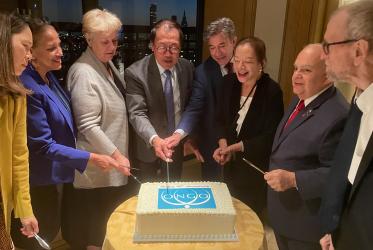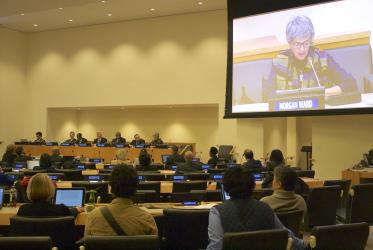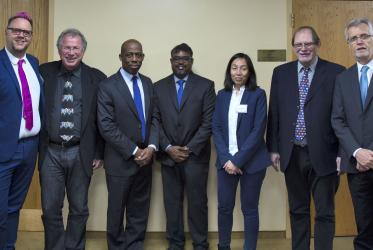Displaying 1 - 13 of 13
25 April 2024
Pan African Women of Faith issue fervent Call to Action
20 November 2018
New economic architecture focus of New York meeting
22 April 2018
At CSW62, “stories are the heartbeat”
21 March 2018
G20 summit: call to pray for peace in Hamburg
07 July 2017









